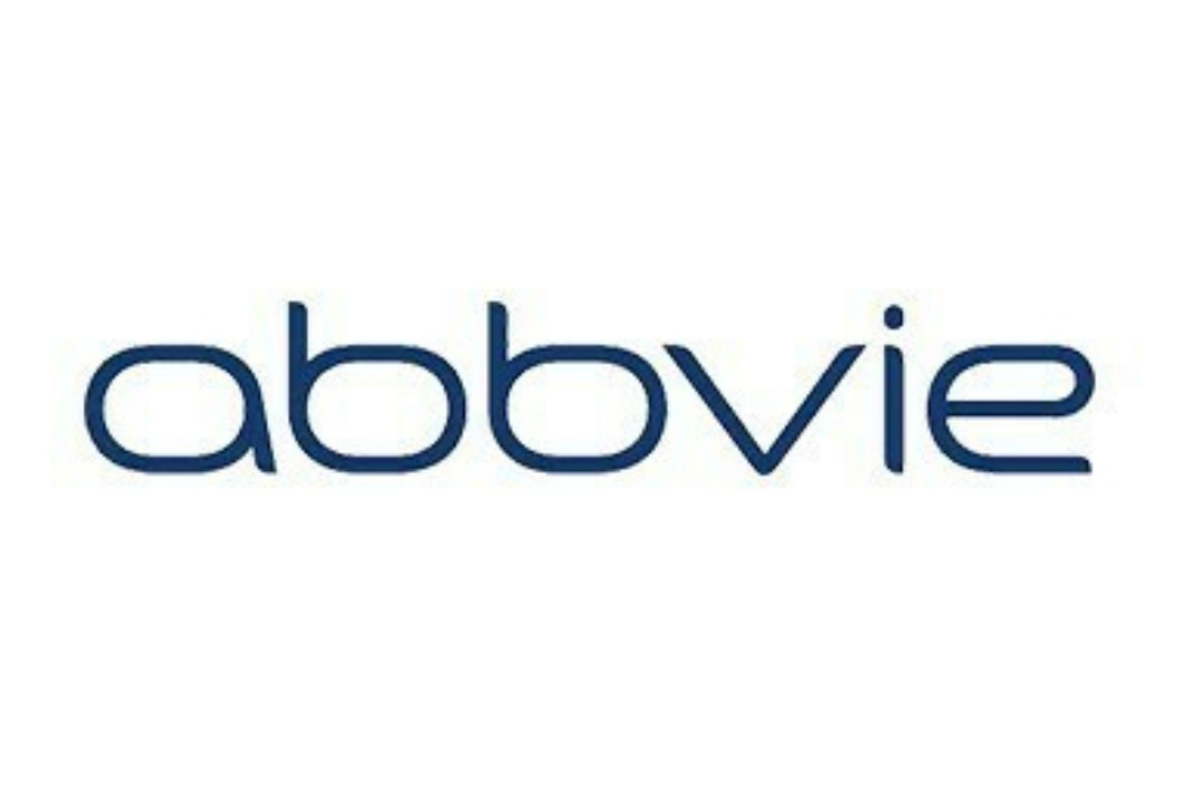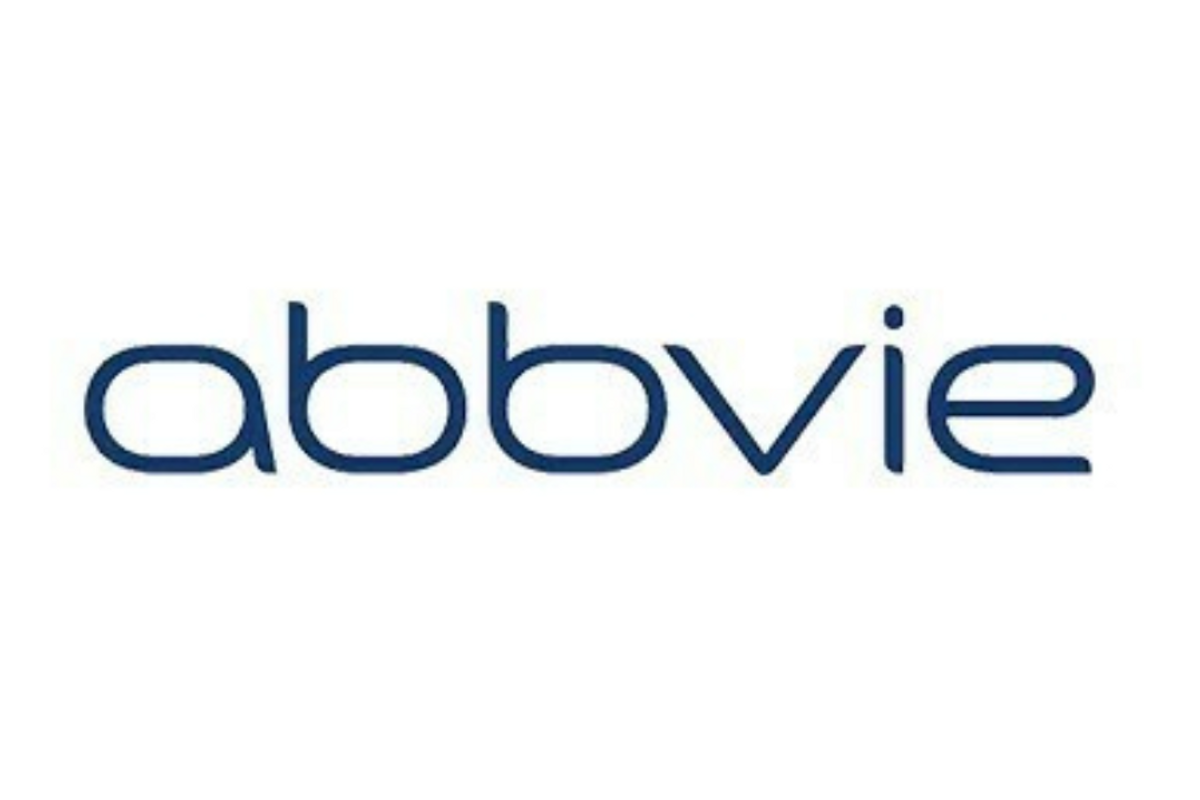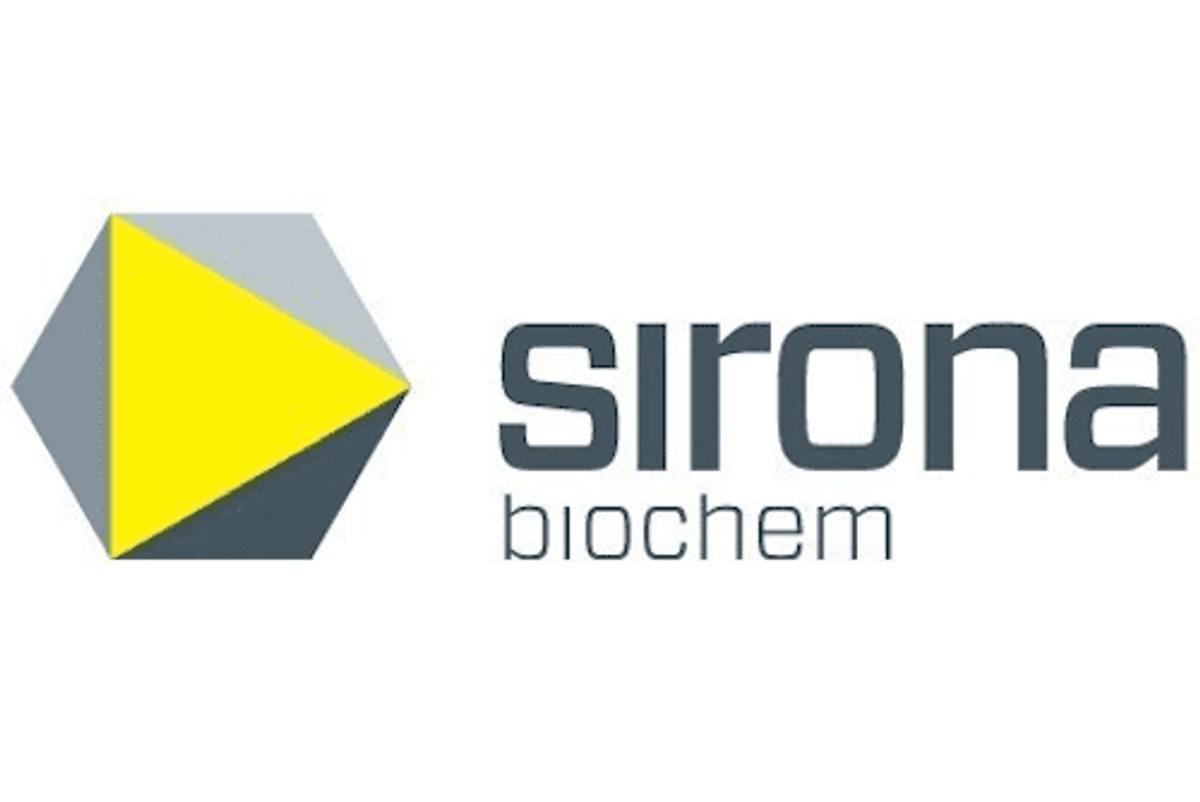- Third approved indication for SKYRIZI (risankizumab-rzaa) is supported by safety and efficacy data from two induction and one maintenance clinical trials evaluating SKYRIZI in moderately to severely active Crohn's disease, ADVANCE, MOTIVATE and FORTIFY 1-4
- As early as week 4 in the induction studies, clinical response and clinical remission were achieved by significantly more subjects treated with SKYRIZI versus placebo, as were co-primary endpoints of endoscopic response and clinical remission at week 12 and week 52 1-4
- Crohn's disease is chronic, systemic and progressive; most patients experience unpredictable symptoms that have a significant impact on daily life 5-8
ABBVie (NYSE: ABBV) today announced that the U.S. Food and Drug Administration (FDA) has approved SKYRIZI ® (risankizumab-rzaa) as the first and only specific interleukin-23 (IL-23) inhibitor for the treatment of adults with moderately to severely active Crohn's disease (CD). 4 In two induction and one maintenance clinical trials, SKYRIZI demonstrated significant improvements in endoscopic response (defined as a decrease of greater than 50% from the baseline Simple Endoscopic Score in CD [SES-CD] or for patients with isolated ileal disease and SES-CD of 4, at least a 2-point reduction from baseline) and clinical remission (defined as a Crohn's Disease Activity Index [CDAI] of less than 150), compared to placebo, as both an induction and maintenance therapy. 4
Experience the interactive Multimedia News Release here: https://www.multivu.com/players/English/8978352-abbvie-fda-crohns-disease/
"We are proud to offer the first new treatment option in six years for moderately to severely active CD, which may provide patients with a meaningful level of endoscopic improvement," said Thomas Hudson , M.D., senior vice president, research and development, chief scientific officer, AbbVie. "With more than 30 ongoing or planned trials in inflammatory bowel disease, AbbVie is committed to advancing the standards of care for patients by exploring and investing in research for those living with immune-mediated, gastroenterological conditions."
The dosing regimen for SKYRIZI for the treatment of CD is 600 mg administered by intravenous infusion over at least one hour at week 0, week 4, and week 8, followed by 360 mg self-administered by subcutaneous injection (SC) with an on-body injector (OBI) at week 12, and every 8 weeks thereafter. 4 A 180 mg self-administered SC maintenance dose option remains under review by the FDA.
Endoscopic and Clinical Outcomes 1-4
The co-primary endpoints of the clinical trials were endoscopic response and clinical remission. In the 12-week induction studies, ADVANCE and MOTIVATE, a significantly greater proportion of patients treated with SKYRIZI achieved endoscopic response and clinical remission compared to placebo. As early as week 4, clinical response (defined as a 100-point reduction in CDAI) and clinical remission were achieved in a significantly greater proportion of patients receiving SKYRIZI as compared to placebo.
In the 52-week maintenance trial, FORTIFY, a significantly greater proportion of patients achieved the co-primary endpoints of endoscopic response and clinical remission as compared with the placebo group (risankizumab induction responders) after one year.
"In both the induction and maintenance clinical trials, a significantly greater number of adult patients saw few or no symptoms and a meaningful reduction of visible signs of intestinal inflammation, compared to placebo," said Marla Dubinsky , M.D., chief, division of pediatric gastroenterology for the Mount Sinai Health System, co-director of the Susan and Leonard Feinstein IBD Center at Mount Sinai.* "This approval provides healthcare professionals with a greatly needed additional option for treating the disruptive symptoms of Crohn's disease."
Safety 4
SKYRIZI may cause serious side effects, including:
- Serious allergic reactions: Stop using SKYRIZI and get emergency medical help right away if you get any symptoms of a serious allergic reaction.
- Infections: SKYRIZI may increase your risk of infections. Before starting treatment, your doctor should check you for infections and tuberculosis. Tell your doctor right away if you have an infection or symptoms of one.
Do not use SKYRIZI if you are allergic to risankizumab-rzaa or any of the ingredients in SKYRIZI. Also, tell your doctor if you plan to or recently received a vaccine. Liver problems in Crohn's disease: A patient in the clinical trial with Crohn's disease who received SKYRIZI by intravenous infusion developed changes in liver blood tests with a rash that led to hospitalization. Your doctor will do liver blood tests before and during treatment and may stop treatment with SKYRIZI if you develop liver problems.
SKYRIZI is part of a collaboration between Boehringer Ingelheim and AbbVie, with AbbVie leading development and commercialization of SKYRIZI globally.
Patient Access and Support
AbbVie is committed to helping people access SKYRIZI and other medicines, including offering a patient support program and co-pay card that may reduce out-of-pocket costs to as little as $5 per month for eligible, commercially-insured patients, who may also be reimbursed for out-of-pocket costs related to IV administration. For those with limited or no health insurance, AbbVie offers myAbbVie Assist, a patient assistance program that provides SKYRIZI at no charge to those who qualify. More information about this assistance program can be found at www.AbbVie.com/myAbbVieAssist .
A bout Crohn's Disease
Crohn's disease is a chronic, systemic disease that manifests as inflammation within the gastrointestinal (or digestive) tract, causing persistent diarrhea and abdominal pain. 5-7 It is a progressive disease, meaning it gets worse over time, and in many cases leads to surgery. 6,7 Because the signs and symptoms of Crohn's disease are unpredictable, it causes a significant burden on people living with the disease. 8
About the ADVANCE and MOTIVATE Studies 1-2
The ADVANCE and MOTIVATE studies are Phase 3, multicenter, randomized, double-blind, placebo-controlled induction studies designed to evaluate the efficacy and safety of two doses of risankizumab, 600 mg and 1200 mg, in adults with moderately to severely active Crohn's disease, compared to placebo. Both studies included different sets of primary and secondary endpoints for outside U.S. (OUS) protocol and U.S. protocol. The primary endpoints were achievement of clinical remission (per PRO-2 for the OUS protocol, which was measured by daily stool frequency and abdominal pain score, and per CDAI for the U.S. protocol, which was measured by a CDAI score less than 150) and endoscopic response (for both protocols) at week 12. Endoscopic response is defined as a decrease of greater than 50% from the baseline SES-CD or for patients with isolated ileal disease and SES-CD of 4, at least a 2-point reduction from baseline, as scored by a central reviewer.
The ADVANCE study included a mixed population of patients who had responded inadequately or were intolerant to conventional and/or biologic therapy. The MOTIVATE study evaluated patients who had responded inadequately or were intolerant to biologic therapy. Topline results of the studies were shared in January 2021. More information can be found on www.clinicaltrials.gov (ADVANCE: NCT03105128; MOTIVATE: NCT03104413).
About the FORTIFY Study 3
The FORTIFY study is a Phase 3, multicenter, randomized, double-blind, control group, 52-week maintenance study designed to evaluate the efficacy and safety of risankizumab 180 mg and 360 mg as maintenance therapy versus withdrawal in patients who responded to risankizumab induction treatment in the ADVANCE and MOTIVATE studies. This study included different sets of primary and secondary endpoints for the OUS analysis plan and U.S. analysis plan due to regulatory requirements in the different regions. The co-primary endpoints were achievement of endoscopic response and clinical remission at week 52. Endoscopic response is defined as a decrease of greater than 50% from the baseline SES-CD or for patients with isolated ileal disease and SES-CD of 4, at least a 2-point reduction from baseline, as scored by a central reviewer. Clinical remission is defined by SF/AP, which was measured by daily stool frequency and abdominal pain score, in the OUS analysis plan and defined by CDAI, which was measured by a CDAI score less than 150, in the U.S. analysis plan.
Topline results were announced in June 2021. An open label extension of FORTIFY will continue to assess the long-term safety of risankizumab in subjects who completed participation in FORTIFY. More information can be found on www.clinicaltrials.gov (NCT03105102).
*Dr. Dubinsky is a paid consultant and advisor for AbbVie.
About SKYRIZI ® (risankizumab-rzaa)
SKYRIZI is an interleukin-23 (IL-23) inhibitor that selectively blocks IL-23 by binding to its p19 subunit. 9,10 IL-23, a cytokine involved in inflammatory processes, is thought to be linked to a number of chronic immune-mediated diseases, including Crohn's disease. 10 The approved dose to treat adults with moderately to severely active Crohn's disease is 600 mg administered by intravenous infusion over at least one hour at week 0, week 4, and week 8, followed by 360 mg administered by subcutaneous injection at week 12, and every 8 weeks thereafter. 4 SKYRIZI is also approved in the U.S. to treat moderate to severe plaque psoriasis in adults who are candidates for systemic therapy or phototherapy, as well as to treat active psoriatic arthritis in adults, and the recommended dosage is 150 mg administered by subcutaneous injection at week 0, week 4, and every 12 weeks thereafter. 4 Phase 3 trials of SKYRIZI in psoriasis, Crohn's disease, ulcerative colitis and psoriatic arthritis are ongoing. 11,12
SKYRIZI U.S. Uses and Important Safety Information 4
SKYRIZI is a prescription medicine used to treat adults with:
- moderate to severe plaque psoriasis who may benefit from taking injections or pills (systemic therapy) or treatment using ultraviolet or UV light (phototherapy).
- active psoriatic arthritis (PsA).
- moderately to severely active Crohn's disease.
What is the most important information I should know about SKYRIZI ® (risankizumab-rzaa)?
SKYRIZI is a prescription medication that may cause serious side effects, including:
Serious Allergic Reactions:
Stop using SKYRIZI and get emergency medical help right away if you get any of the following symptoms of a serious allergic reaction:
- Fainting, dizziness, feeling lightheaded (low blood pressure)
- Swelling of your face, eyelids, lips, mouth, tongue, or throat
- Trouble breathing or throat tightness
- Chest tightness
- Skin rash, hives
- Itching
Infections: SKYRIZI may lower the ability of your immune system to fight infections and may increase your risk of infections. Your healthcare provider should check you for infections and tuberculosis (TB) before starting treatment with SKYRIZI and may treat you for TB before you begin treatment with SKYRIZI if you have a history of TB or have active TB. Your healthcare provider should watch you closely for signs and symptoms of TB during and after treatment with SKYRIZI.
- Tell your healthcare provider right away if you have an infection or have symptoms of an infection, including:
- fever, sweats, or chills
- muscle aches
- weight loss
- cough
- warm, red, or painful skin or sores on your body different from your psoriasis
- diarrhea or stomach pain
- shortness of breath
- blood in your mucus (phlegm)
- burning when you urinate or urinating more often than normal
Do not use SKYRIZI if you are allergic to risankizumab-rzaa or any of the ingredients in SKYRIZI.
Before using SKYRIZI, tell your healthcare provider about all of your medical conditions, including if you:
- have any of the conditions or symptoms listed in the section "What is the most important information I should know about SKYRIZI?"
- have an infection that does not go away or that keeps coming back.
- have TB or have been in close contact with someone with TB.
- have recently received or are scheduled to receive an immunization (vaccine). Medicines that interact with the immune system may increase your risk of getting an infection after receiving live vaccines. You should avoid receiving live vaccines right before, during, or right after treatment with SKYRIZI. Tell your healthcare provider that you are taking SKYRIZI before receiving a vaccine.
- are pregnant or plan to become pregnant. It is not known if SKYRIZI can harm your unborn baby.
- are breastfeeding or plan to breastfeed. It is not known if SKYRIZI passes into your breast milk.
Tell your healthcare provider about all the medicines you take, including prescription and over-the-counter medicines, vitamins, and herbal supplements.
What are the possible side effects of SKYRIZI?
SKYRIZI may cause serious side effects. See "What is the most important information I should know about SKYRIZI?"
Liver problems in people with Crohn's disease: A person with Crohn's disease who received SKYRIZI by intravenous infusion developed changes in liver blood tests with a rash that led to hospitalization. Your doctor will do blood tests to check your liver before, during, and up to 12 weeks of treatment and may stop treatment with SKYRIZI if you develop liver problems. Tell your doctor right away if you notice any of the following symptoms: unexplained rash, nausea, vomiting, stomach(abdominal) pain, tiredness(fatigue), loss of appetite, yellowing of the skin and eyes (jaundice) and dark urine.
The most common side effects of SKYRIZI in people treated for Crohn's Disease include upper respiratory infections, injection site reactions, fever, headache, stomach(abdominal) pain, back pain, joint pain, and low red blood cells (anemia).
The most common side effects of SKYRIZI in people treated for plaque psoriasis and psoriatic arthritis include upper respiratory infections, feeling tired, fungal skin infections, headache, and injection site reactions.
These are not all the possible side effects of SKYRIZI. Call your doctor for medical advice about side effects.
Use SKYRIZI exactly as your healthcare provider tells you to use it.
SKYRIZI is available in a 150 mg/mL prefilled syringe and pen, a 600mg/10mL intravenous infusion, and a 360mg/2.4mL single-dose prefilled cartridge with on-body injector.
This is the most important information to know about SKYRIZI. For more information, talk to your HCP.
You are encouraged to report negative side effects of prescription drugs to the FDA. Visit https://www.fda.gov/medwatch or call 1-800-FDA-1088.
If you are having difficulty paying for your medicine, AbbVie may be able to help. Visit AbbVie.com/myAbbVieAssist to learn more.
Please click here for Full Prescribing Information and Medication Guide for SKYRIZI.
Globally, prescribing information varies; refer to the individual country product label for complete information.
About AbbVie in Gastroenterology
With a robust clinical trial program, AbbVie is committed to cutting-edge research to drive exciting developments in inflammatory bowel diseases (IBD), like ulcerative colitis and Crohn's disease. By innovating, learning and adapting, AbbVie aspires to eliminate the burden of IBD and make a positive long-term impact on the lives of people with IBD. For more information on AbbVie in gastroenterology, visit https://www.abbvie.com/our-science/therapeutic-focus-areas/immunology/immunology-focus-areas/gastroenterology.html .
About AbbVie
AbbVie's mission is to discover and deliver innovative medicines that solve serious health issues today and address the medical challenges of tomorrow. We strive to have a remarkable impact on people's lives across several key therapeutic areas: immunology, oncology, neuroscience, eye care, virology, women's health and gastroenterology, in addition to products and services across our Allergan Aesthetics portfolio. For more information about AbbVie, please visit us at www.abbvie.com . Follow @abbvie on Twitter , Facebook , LinkedIn or Instagram .
Forward-Looking Statements
Some statements in this news release are, or may be considered, forward-looking statements for purposes of the Private Securities Litigation Reform Act of 1995. The words "believe," "expect," "anticipate," "project" and similar expressions, among others, generally identify forward-looking statements. AbbVie cautions that these forward-looking statements are subject to risks and uncertainties that may cause actual results to differ materially from those indicated in the forward-looking statements. Such risks and uncertainties include, but are not limited to, failure to realize the expected benefits from AbbVie's acquisition of Allergan plc ("Allergan"), failure to promptly and effectively integrate Allergan's businesses, competition from other products, challenges to intellectual property, difficulties inherent in the research and development process, adverse litigation or government action, changes to laws and regulations applicable to our industry and the impact of public health outbreaks, epidemics or pandemics, such as COVID-19. Additional information about the economic, competitive, governmental, technological and other factors that may affect AbbVie's operations is set forth in Item 1A, "Risk Factors," of AbbVie's 2021 Annual Report on Form 10-K, which has been filed with the Securities and Exchange Commission, as updated by its subsequent Quarterly Reports on Form 10-Q. AbbVie undertakes no obligation to release publicly any revisions to forward-looking statements as a result of subsequent events or developments, except as required by law.
US-SKZG-210127
References:
- A Study of the Efficacy and Safety of Risankizumab in Participants With Moderately to Severely Active Crohn's Disease. ClinicalTrials.gov 2022. Available at https://www.clinicaltrials.gov/ct2/show/NCT03105128 . Accessed on June 8, 2022 .
- A Study of the Efficacy and Safety of Risankizumab in Participants With Moderately to Severely Active Crohn's Disease Who Failed Prior Biologic Treatment. ClinicalTrials.gov 2022. Available at https://clinicaltrials.gov/ct2/show/NCT03104413 . Accessed on June 8, 2022 .
- A Study of the Efficacy and Safety of Risankizumab in Participants With Crohn's Disease. ClinicalTrials.gov 2022. Available at https://clinicaltrials.gov/ct2/show/NCT03105102 . Accessed on June 8, 2022 .
- SKYRIZI [package insert]. North Chicago, IL : AbbVie Inc.; 2022.
- Kaplan G. The global burden of IBD: from 2015 to 2025. Nat Rev Gastroenterol Hepatol . 2015 Dec;12(12):720-7. doi: 10.1038/nrgastro.2015.150.
- The Facts about Inflammatory Bowel Diseases. Crohn's & Colitis Foundation of America. 2014. Available at: https://www.crohnscolitisfoundation.org/sites/default/files/2019-02/Updated%20IBD%20Factbook.pdf . Accessed on June 8, 2022 .
- Crohn's disease. Symptoms and Causes. Mayo Clinic. 2020. Available at: https://www.mayoclinic.org/diseases-conditions/crohns-disease/symptoms-causes/syc-20353304 . Accessed on June 8, 2022.
- The Economic Costs of Crohn's Disease and Ulcerative Colitis. Access Economics Pty Limited. 2007. Available at: https://www.crohnsandcolitis.com.au/site/wp-content/uploads/Deloitte-Access-Economics-Report.pdf . Accessed on January 26, 2022.
- SKYRIZI [Summary of Product Characteristics]. AbbVie Ltd. Available at: https://www.ema.europa.eu/en/documents/product-information/skyrizi-epar-product-information_en.pdf . Accessed on June 8, 2022.
- Duvallet, E., Sererano, L., Assier, E., et al. Interleukin-23: a key cytokine in inflammatory diseases. Ann Med . 2011 Nov;43(7):503-11.
- A Multicenter, Randomized, Double-Blind, Placebo Controlled Induction Study to Evaluate the Efficacy and Safety of Risankizumab in Participants With Moderately to Severely Active Ulcerative Colitis. ClinicalTrials.gov. 2021. Available at: https://clinicaltrials.gov/ct2/show/record/NCT03398148 . Accessed on June 8, 2022.
- Pipeline – Our Science | AbbVie. AbbVie. 2021. Available at: https://www.abbvie.com/our-science/pipeline.html . Accessed on June 8, 2022.
| Media: +1 (973) 307-6145
| Investors: Liz Shea
|
SOURCE AbbVie



